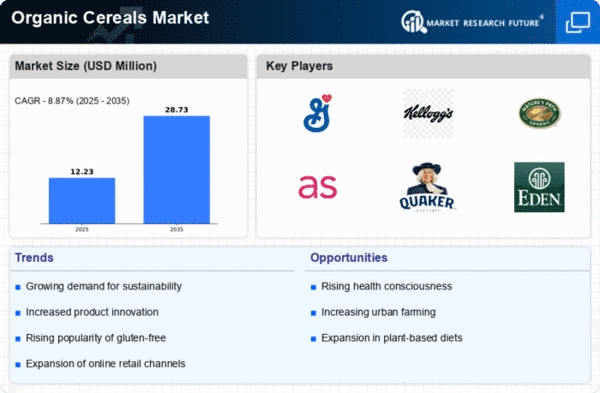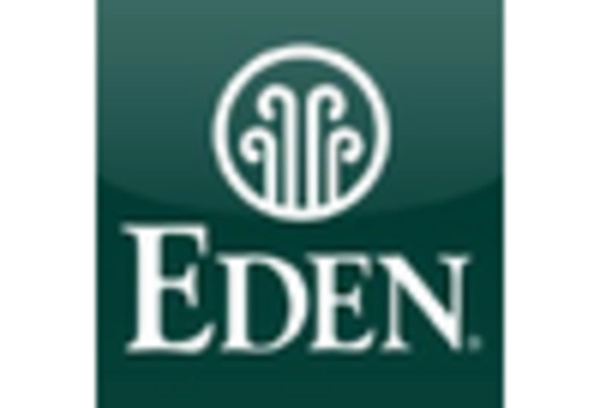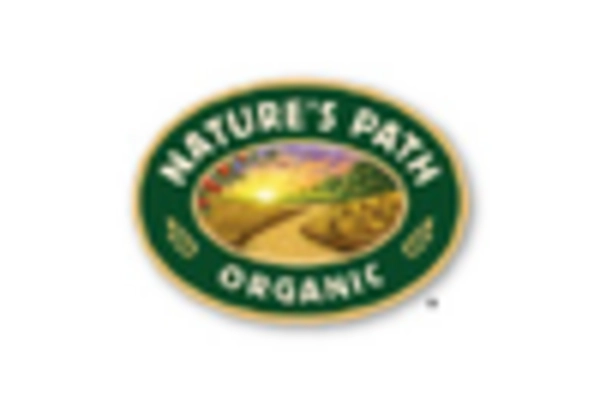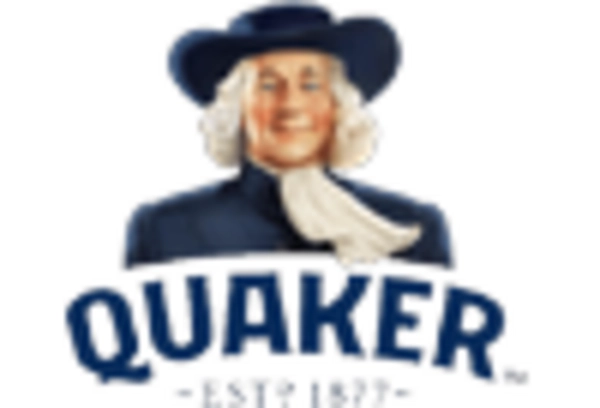Market Share
Organic Cereals Market Share Analysis
Market share positioning strategies play a pivotal role in shaping the competitive landscape of the organic cereals market. Companies within this sector employ various approaches to establish and enhance their market presence. One prevalent strategy is differentiation through product innovation. Brands seek to distinguish themselves by introducing unique and appealing organic cereal formulations, often incorporating novel ingredients, flavors, or nutritional enhancements. This strategy not only attracts health-conscious consumers but also fosters brand loyalty by offering a distinctive value proposition in a crowded market.
Price positioning is another crucial aspect of market share strategies in the organic cereals segment. While organic products typically command a premium, some brands strategically position themselves as more affordable without compromising on quality. This approach aims to tap into a broader consumer base, including those who may be price-sensitive but still value organic and healthy food choices. By strategically pricing their products, companies can carve out a niche in the market and gain a competitive edge, particularly in regions where cost considerations strongly influence consumer purchasing decisions. Cereals have become the preferred option for health-conscious individuals due to their nutritional benefits. They have attained staple status in diverse regions worldwide, contributing to the rising demand for these grains. The surge in the preference for organic food is poised to amplify the demand for the global organic cereals market. Furthermore, the expanding vegan population is foreseen as a key factor propelling the growth of the global organic cereals market. Strategic partnerships and collaborations are becoming increasingly common in the organic cereals market. Companies often form alliances with organic ingredient suppliers, farmers, or other stakeholders in the supply chain to ensure a consistent and high-quality source of organic ingredients. By establishing such partnerships, brands can strengthen their supply chain resilience, streamline operations, and maintain a competitive advantage in terms of product quality and availability. Collaborations also open avenues for joint marketing efforts, enabling brands to leverage each other's strengths and expand their market reach.
Geographical expansion is a notable market share positioning strategy in the organic cereals market. Companies seek to capitalize on the growing demand for organic products in different regions by expanding their distribution networks and entering new markets. This strategy involves adapting products to meet regional preferences and regulatory requirements, allowing brands to cater to diverse consumer needs. Geographic expansion not only broadens market reach but also helps companies mitigate risks associated with dependency on specific markets.
In response to the rising trend of e-commerce, many brands in the organic cereals market are focusing on strengthening their online presence. Establishing a robust digital presence enables companies to reach a broader audience and engage directly with consumers. E-commerce platforms provide an avenue for convenient product accessibility, personalized marketing, and real-time feedback. Brands that invest in their online presence can enhance customer engagement, build brand loyalty, and gain a competitive advantage in the rapidly evolving digital landscape.
Sustainability and ethical positioning have become increasingly important in the organic cereals market. Consumers are not only seeking healthier food options but are also placing a premium on environmentally conscious and socially responsible brands. Companies that adopt sustainable and ethical practices in their sourcing, production, and packaging processes can differentiate themselves in the market. This strategy resonates with a growing segment of environmentally conscious consumers who prioritize brands that align with their values, contributing to long-term brand loyalty and positive market positioning.


















Leave a Comment